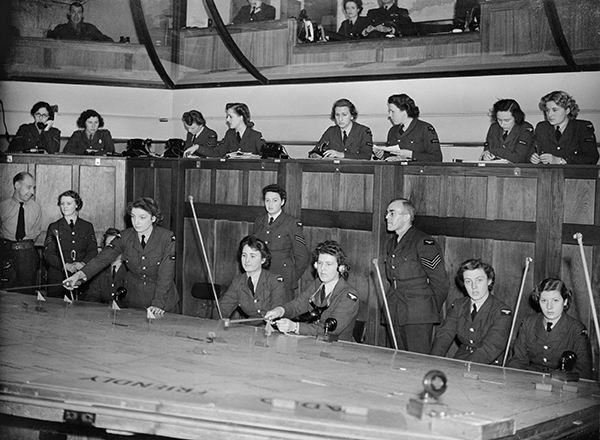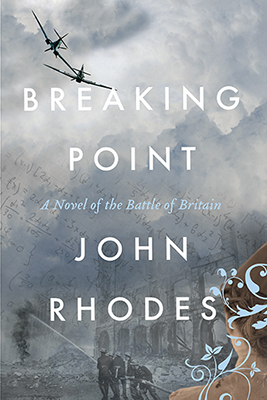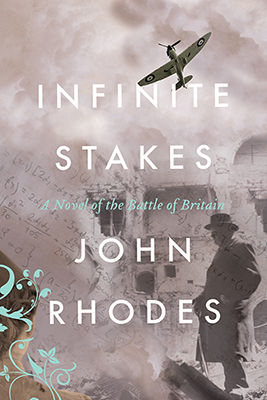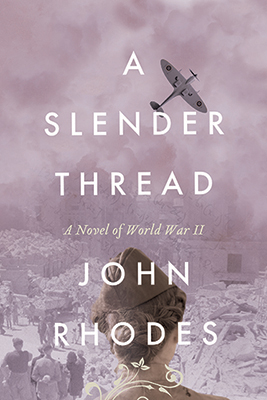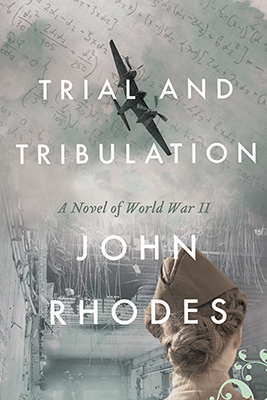11 Group Operations Room, Uxbridge
In my last blog I wrote about women in World War II, and how the war proved to be the most important single event along women’s long (and still continuing) march toward equality. When I began writing the Breaking Point series I knew I had to reflect that dramatic step forward. I had to show the all-enveloping male chauvinism of the era being pierced, first by tiny pinpricks here and there, and then by gaping holes in the fabric, as women made a greater and greater contribution to the war effort.
Eleanor Shaux, my female protagonist, began life as a narrative device (as all characters do.) In Breaking Point I wanted to tell the story of the 1940 Battle of Britain from two perspectives: from the immediate tactical perspective looking out of the cockpit of a Spitfire high above Kent, and from a strategic perspective, looking at the battle as a whole as it played out on the big map table in the Operations Room at 11 Group HQ. My male protagonist Johnnie lived the day-to-day reality of the battle, and Eleanor carried the story from the strategic viewpoint.
Johnnie’s job, from my author’s viewpoint, was to stay alive regardless of the odds and dangers involved, so my readers could see the squadron on the ground at the RAF station, in the air, and in the pub. His ‘angle,’ in that respect, was straightforward.
Eleanor needed to be at Uxbridge in the Battle of Britain bunker working with Keith Park, so the readers could see Park commanding 11 Group and all the difficulties and pressures that involved. But what was she doing there? Women were usually given humdrum jobs. The more important jobs assigned to women (such as communications and radar operation) required accuracy and patience but seldom originality or creativity.
In addition, while Johnnie was surrounded by fictional characters, Eleanor came into contact with real historical people like Keith Park, AOC 11 Group, and Hugh Dowding, AOC-in-C Fighter Command. Why would men like that bother with Eleanor, if she had existed? She had to have a skill they would have valued but which, as far as I know, they did not have available to them, or at least available in the manner she created. We first met Eleanor when she was working in the Air Ministry in August 1940 as one of the minister’s assistants:
“Will the Luftwaffe defeat the RAF?” Maxwell asked.
Clearly the minister did not wish to answer so blunt a question directly; he glanced at Eleanor.
“It’s impossible to say, Mr. Maxwell,” she said. “Over the past week the Germans have been carrying out an intensive bombing campaign against RAF airfields and the Chain Home RDF stations. First they send formations of fighters as decoys to try to draw our own fighters up. Then formations of bombers follow them in and try to reach their targets, supported by additional fighters. Cumulatively they’re sending hundreds of aircraft every day, often bombing the same targets repeatedly. They’re trying to drive the RAF out of southern England.”
“But, Mrs. Rand—”
“It’s a question of mathematics, sir,” she continued, overriding him. “We have approximately seven hundred fighters to defend the entire British Isles. They have, we estimate, a thousand fighters and fifteen hundred bombers. If we shoot down three of their aircraft for every one of ours, we’ll lose. In fact, we’re shooting down less than two of theirs for every one of ours. At the rate we’re currently losing aircraft, the last remaining Spitfire will go down three weeks from now, and the enemy will have close to a thousand aircraft left.”
“Good God, Mrs. Rand, you make it sound hopeless!”
“Not hopeless, sir, but victory is mathematically improbable.”
“Are you a mathematician, Mrs. Rand?”
The tone of his question implied a joke, for how could a woman possibly grasp the pure reason and the cold logic that formed the foundations upon which mathematics was built?
“I am, sir,” she answered, and his eyes widened a trifle.
The minister intervened.
“I fear Napoleon said that God is on the side of the big battalions, if I recall correctly,” he said.
“It was Voltaire, sir,” Eleanor said, and immediately wished she hadn’t, but the minister’s ample complacency seemed to remain intact.
Most of the men around Eleanor were a little disconcerted—or more than a little disconcerted—when she started thinking for herself. Once she did that, from my author’s perspective, she ceased to be a plot device and became a person, and I could relax and enjoy writing down what she was doing and saying.
Breaking Point, the first book in the series, was set back in 1940 and the latest story I’m beginning to write is set in 1943. Just as men weren’t sure what to do with her in 1940, they still aren’t in 1943. Three years later she’s still a fish out of water, a woman in a man’s world, as all the women were in World War II.
It was a bit odd that women could fly B17 heavy bombers, but they could and did. It was a bit odd that they could operate high-precision machine tools in aircraft factories, but they did. It was a bit odd that they were better at sighting antiaircraft guns, but they were. Millions of women around the world did things that men did not expect them to be able to do, and did them as well or better than their male counterparts.
It was all a bit odd—more than a bit odd.
The second book, Infinite Stakes, finished the story of the Battle of Britain and took Eleanor and Johnnie on into 1941, culminating in the attack on Pearl Harbor that brought America into the war. Eleanor was in the 11 Group control room at the height of the Battle of Britain:
The WAAFs moved efficiently all around, talking quietly into their headsets, adjusting the markers on the table and updating the squadron displays. They seemed oblivious to Churchill’s looming presence in the gallery above. Eleanor had never seen the WAAFs become flustered, even in the heat of the greatest raids, with dozens of markers scattered across the table. In everyday life they would be shop girls, or factory workers, or perhaps young wives, the kind of young women who, in normal society, would not be expected to manage major responsibilities, limited to scrubbing floors and cooking simple meals to put in front of their husbands, and certainly not to manage major responsibilities in a military organization.
What nonsense! These women were performing their duties flawlessly, just as competently as the male controllers and intelligence officers sitting up in the balcony. The Dowding system—the Fighter Command control system—relied on WAAFs in a dozen different roles. In fact, Eleanor thought, there were women in the Supermarine factories building Spitfires and in the Hawker factories building Hurricanes. There were women assembling the Merlin engines that powered them.
Eleanor shook her head slowly. There were women down here doing the work, and men up there on the balconies seated in comfortable chairs, watching them. One day the world would change. One day, perhaps, the prime minister would be a woman. Yes, she said to herself, and one day pigs will fly!
The third book in the series, A Slender Thread, is set in the summer of 1942 and will be published in March. By now Eleanor’s analytic and mathematical skills have been recognized and she is working at the highest levels of strategic planning:
Churchill had, at one point, summoned her to No. 10, Downing Street, and gazed at her through his customary cloud of cigar smoke.
“I am told, Wing Officer, that you are being difficult,” he had rumbled.
“No doubt, sir.”
“I am told you oppose amphibious landings upon the northwestern shores of Africa.”
“Yes, sir, I do.”
“Pray tell me why?”
“Because the shortest way from London to Berlin is eastward, sir, through Antwerp or Rotterdam, for example. Germany is to the east. Instead, we seem to be heading southward, away from Berlin, completely in the wrong direction.”
Churchill grunted.
“Any plan based upon deliberately going in completely the wrong direction, away from the target, must be deemed unlikely to be prudent.”
Churchill glowered but said nothing. He had a history of unsuccessful campaigns far away from the main arena, she thought—Narvik in Norway just a year or so ago, and the tragedy of Gallipoli in the Great War.
“In addition, sir, a disinterested observer might point out that we’re at war with Germany, not with France. Why, then, are we intending to attack unoccupied French territory instead of German-occupied territory?”
Churchill grunted again.
“Germany is in Europe, not Africa. Could we at least invade the correct continent, sir?”
When did irony turn into sarcasm? She’d better stop.
“Would it change your mind, Wing Officer, to know that this is the plan I favor?”
“It would not, sir.”
“Ha!” Churchill beamed. “Now I see it is true: opposing a plan is exercising judgement, an entirely legitimate and often noble activity—indeed, your duty—but opposing me is the very essence, the very soul, of being difficult.”
“What do you want me to do, sir?” She was never quite sure what he wanted.
“Continue, Wing Officer, continue.”
Then he had taken up his fountainpen and begun to write. Churchill never dismissed her, she had come to learn; he simply moved on to something he considered to be next, leaving her to depart and, on this occasion, she presumed, to continue being difficult.
She is so much fun to write about! I can’t wait to see what she does next.



